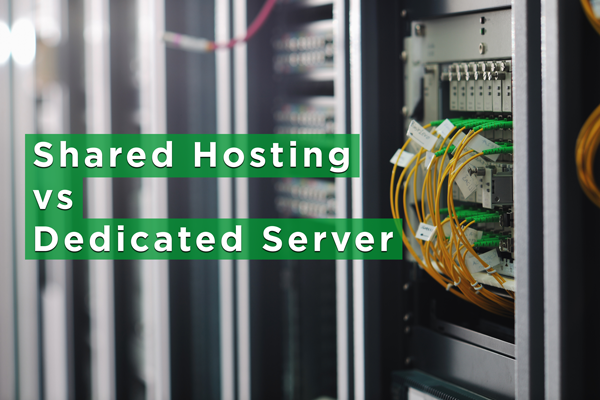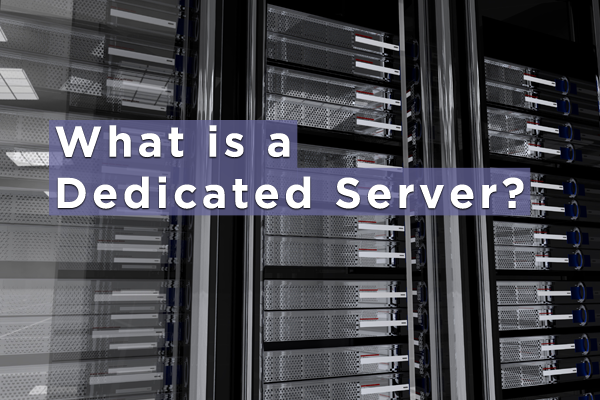Archive for the ‘web hosting’ tag
Is Your Website Ready For The Holidays? no comments
It’s getting colder outside. It’s getting darker sooner. The time has been rolled back an hour, for those of us living in the United States. Winter is right around the corner and with winter, comes holidays. Thanksgiving is a few weeks away with Christmas coming in a close second and finally New Years. Now, why am I telling you all this? Matter of fact, why am I reminding you of these holidays? Isn’t this supposed to be a blog based on technology and not holiday seasons?
Well, I’m glad you asked. This part of the season is busy for us, due to the holiday specials we run. All the way from Black Friday to Cyber Monday. Everything is on sale for a fraction of the price. Everything from Virtual Private Servers (VPS) to top-of-the-line Dedicated Servers. During this time, traffic nearly quadruples to our main site, TurnKey Internet. Everyone wants to get in on the sales. Everyone wants to setup a website for their business. People are just shopping around for hosting providers if you will. Well, with that increased traffic comes increased strain on your servers which brings me to reason I’m writing this article.
With the holiday season rapidly approaching, you may decide to run a special on your products and services. The number one item that always occurs when running specials is an increased awareness of your product. That means you may have bandwidth spikes from potential customers viewing your website. You may have your products selling like hotcakes, but the question becomes, are you prepared for this? Are you prepared from the increased amount of traffic to your site? If you’re not sure, then you should continue reading.
As mentioned previously in this post, you will more than likely have a spike in traffic to your website which brings me to bandwidth. Do you have enough bandwidth ready to accommodate the spike in traffic your site may experience? If not, you should speak with your hosting provider about pricing plans for bandwidth.
Next, what about disk space? If you’re selling products online, more than likely you have a database storing the products with the customer information that is purchasing said products. Well if you’re running a special and have a higher than normal amount of people purchasing from you, you would want to ensure that you have enough disk space to accommodate said orders. The last thing you want is your website to freeze or go off-line due to you running out of space because your database has tripled in size. You should speak with your hosting provider to ensure that you have enough adequate disk space.
This brings me to last point. You’ve checked your bandwidth and your disk space and they are more than adequate for your special. What’s next? Well, is your current environment sufficient to handle your increased sales? Let’s say your website is on a basic hosting account and receives a large spike of traffic during your holiday sales. Will your host throttle your account as it could be consuming too many resources? If your account is on a basic shared server, this is very high probability as the server will throttle your account for consuming too many resources. You should be aware of these limitations and speak with your hosting provider to see if they can handle your increased traffic. The last thing you want is a user who can’t place an order because when they view your site, they are seeing Resources Exceeded instead of your website.
Follow Us :
Share :
Securing cPanel no comments
cPanel is one of the most popular web hosting control panels available today. With it’s user-friendly graphical interface and robust server automation tools, cPanel is designed to make web hosting as simple as possible. However, like many other popular applications, it can be vulnerable to potential security problems. To prevent your website from falling victim to hackers and malware, it is critical that you manage and routinely check your server’s cPanel security settings.
SSH
SSH or Secure Shell, is a common way users access their server or website remotely. Unfortunately, it also provides an entry point for hackers. Data sent through SSH is authenticated and encrypted to prevent outside manipulation, so malicious users can’t touch it unless they break through your security measures. The default port of 22 is the most common setting for SSH access. Changing it to another available port and implementing a security key for logins minimizes the risk of being hacked. Switch the settings from SSH1 to SSH2 for additional protection.
Firewall
A firewall lets users access cPanel while keeping unauthorized individuals out. ConfigServer Security and Firewall or CSF, is one of the most popular firewalls for cPanel. It scans the system on a regular basis and checks authentication logs to keep your site safe from hackers at all times. CSF also provides feedback on how to make your server more secure overall.
Brute Force Protection
Although a firewall can prevent hackers from gaining access to a website or server, it won’t stop them from trying to log in. Brute force protection is a feature of cPanel used to block IP addresses after multiple failed login attempts. Found under the ‘Security Center’ section, this option is easy to enable and customize. Use the IP Deny Manager to manually input IP addresses known to be malicious so that they’re never allowed to log on. You can customize the brute force option, known as cPHulk, by setting how many minutes the tool monitors for repeated logins, the maximum number of failed logins allowed and how long each IP ban stays in place.
Passwords
From your admin cPanel login to individual email accounts, every access point needs a strong, secure password. Longer passwords allow for more complex combinations of numbers, symbols and upper- and lower-case letters. Use a different password for accessing cPanel, FTP, email management and other secure areas, making sure none of them contain obvious information such as phone numbers or birthdays. If you have trouble coming up with enough different combinations, try an online password generator.
Automatic Updates
One of the easiest ways to keep cPanel secure is to enable automatic updates. Old versions of software, including cPanel, may contain security vulnerabilities hackers can use to access your server. Automatic updates ensure you’re always running the latest version of cPanel with any associated security patches and bug fixes. Go back and check once and a while to confirm updates are running as they should. If not, update manually and contact your web host to find out why the setting isn’t working.
Additional Settings to ‘Tweak’
While you’re taking care of the larger security issues in cPanel, make sure you don’t neglect less common settings. Open ‘Tweak Settings’ under Server Configuration to access an entire list of other possible security measures. With this checklist, you can:
• Help prevent the sending of unauthorized emails, including spam
• Shut down potential email attacks
• Block malicious referrals or redirects from hijacking your site
• Stop the generation of proxy domains
• Require IP validation for cookies
• Set up an additional security token for cPanel access
Enabling these additional cPanel security settings helps address any remaining vulnerabilities and keep hackers at bay. But, for those of you who feel there’s just not enough time in your day to employ these security measures, or if you just prefer someone else does it for you, at TurnKey Internet we got your back. We offer Fully Managed solutions that include Server Hardening. We’ll take care of securing and protecting your server and cPanel so you can focus on running your business.
For more information, visit https://turnkeyinternet.net/managed/
Follow Us :
Share :
Web Hosting 101: What is a VPS? 1 comment
Businesses are faced with a wide variety of choices and options when it comes to finding a hosting solution for their website, company email and data. One option is shared hosting, in which a single server’s resources are shared by a number of different websites and users. However, if you’re a business looking for more power, control, and flexibility, the solution for you may be a VPS or Virtual Private Server. A VPS offers the ultimate combination of performance, value, security and are far more flexible than other hosting options, giving your organization full control over the security settings, choice of operating system, control panels, software configuration, and applications.
Let’s take a look at some specific advantages of choosing a VPS:
Guaranteed Resources
When using a VPS, your server is provisioned with a specified amount of performance resources that is exclusive and guaranteed to you and no one else. Not only will this give your business more room to work with and expand, it will also prevent issues with your site caused by other websites. For example, if you’re site is hosted on a shared server where there is another website that is being attacked or hogging up resources, this can affect the performance of your own company’s website.
Customized Performance & Software
A VPS allows your business to customize performance and software based on your company’s unique needs. Things like CPU Cores, Memory, and Hard Drive space can all be customized and upgraded on a VPS. With shared hosting, you are limited to the software already installed on the server, and sometimes it may lack a requirement or feature your business needs. But with a VPS, you have full flexibility over which software the server runs, even down to the Operating System.
Administrative Access
One downside of shared hosting solution is the lack of Administrative or root access. This limitation affects what software you can install as well as the settings and options that you can configure. This can greatly impact the potential of what you are able to do with your website. However with a VPS, you do have root/admin access to your virtual server. This advantage will also provide you with the ability to better monitor and troubleshoot your website because you’ll have full access to your virtual server’s logs.
Dedicated IP Address
Each VPS comes with its own dedicated IP address. With shared hosting, your site may be sharing an IP address with multiple websites. If your website happens to share an IP with a site that spams or contains malware, this can cause multiple problems. Your website can end up getting blocked, your email rejected as spam, even your search results can be affected. Another thing to consider is whether or not you’ll be running e-commerce software or selling things on your site. If so, you will need to have an SSL for your site, which in turn requires a unique dedicated IP.
Now if you’re worried that you’re not tech savvy enough to run your own VPS, consider the option of going with a Managed VPS solution, which will provide many additional benefits on top of what’s listed above. There are countless other advantages to using a VPS, however the 4 above are some of the most notable. So before you decide to host your website on a shared server, consider the added flexibility, reliability, and performance that a VPS can provide.
Backed with bulletproof reliability, TurnKey Internet’s virtual private servers offer the perfect balance of value, performance, and ease-of-use. All VPS packages include 100% network up-time, 24/7 support, and a 30-day money-back guarantee! Turnkey Internet offers a full suite of managed hosting services such as server back-ups, hands-on system administration, intrusion detection protection, and advanced firewall protection services. Select from Linux or Windows operating systems. Choose control panel software from cPanel, Plesk and DirectAdmin. For more information, visit www.turnkeyinternet.net
Follow Us :
Share :
Why Website Speed Matters (Infographic) no comments
Click Here to see just how fast your website can be with TurnKey Internet! – FIRST MONTH FREE!
Click Here to see just how fast your website can be with TurnKey Internet! – FIRST MONTH FREE!
Shared Hosting vs Dedicated Server no comments
When you are just getting started, a shared web hosting plan is typically enough to help you meet your goals. It gives you a platform to collect leads, showcase your company and sell your products and services. The problem with shared hosting, though, is that it comes with limited performance and limited room for growth. Although it’s enough while your business is still small, you might want to think about upgrading as your business starts to grow. Many people have a hard time deciding when to make the switch, and if you can relate to this problem, then the following information will get you started in the right direction. You will learn about the benefits of using a dedicated server, but you will also get a clear picture of when to take action.
With most shared hosting plans, your performance can be impacted by the way that other people on the server use their resources. If someone else’s website is getting a lot of traffic or being attacked, then your website might slow down or even go offline for a while. If you depend on your site to generate sales, then this downtime is unacceptable. When your customers want to make a purchase, they are not always going to wait for your content to come online again. So any performance issues that you experience can hurt your profitability. A dedicated server will help you avoid that problem by providing you with exclusive resources. A dedicated server also enables your business to customize and configure the performance resources and software based on your company’s unique needs. Things like CPUs, memory, and storage space, can all be customized and upgraded on a dedicated server. With shared hosting, you are limited to the software already installed on the server, and sometimes it may lack a requirement or feature your business needs. But with a dedicated server, you have full flexibility over which software your server runs, even down to the Operating System (Windows, Linux, etc).
Another downside of shared hosting is the lack of Administrative or root access to the server. This limitation affects what software you can install as well as the settings and options that you can configure on the server. This can greatly impact the potential of what you are able to do with your website. However with a dedicated server, you do have full root or admin access, giving you the ability to better monitor and troubleshoot your website, with full access to your virtual server’s logs. With a dedicated server, you have exclusive access and can dictate who shares that access. This allows you to better secure the contents on your server and alleviates the concerns of sharing a server with malicious or careless users. Also because you have full control over the server, you can better enhance and customize its security based on your unique needs.
If you have decided that you need to upgrade, then consider it a good thing. Needing more resources means that your business is growing and that you are attracting plenty of new customers. Having a dedicated server will help you accommodate even more web traffic, and you will not need to worry about losing sales or customers due to downtime. The speed and performance of a dedicated server will also help you maintain a professional image, which will enhance and preserve your reputation. Some business owners procrastinate when they need to upgrade their website, but doing so hurts them more than they likely suspect. Ensuring that your web hosting solution is capable of meeting your needs is a vital factor when it comes to getting the most from your business, and you can get started right away.
Follow Us :
Share :
What is a Dedicated Server? no comments
A dedicated server (also known as a bare metal server) offers the ultimate combination of performance, value and security for your web hosting needs. A dedicated server provides you with exclusive access to all the physical hardware in the server (CPU, Ram, Disk, Network Port, and the physical chassis of the server). Nothing on the server is shared with any other clients in any fashion.
For most clients with a new website or business, a Shared Hosting solution is enough to get off the ground. But, for many there comes a point when shared hosting just isn’t enough. The most obvious sign that it’s time for an upgrade is when your website has started regularly requiring more bandwidth or resources than your current plan provides. If your business increases in popularity, thus suddenly sending more visitors to your website, it could temporarily go offline. However, upgrading your shared hosting to a dedicated server can prevent this.
Regardless of the content of your website, if you’re worried about stability, a dedicated server is always the safest bet. Below you will find a summary of all the benefits a dedicated server provides.
Performance
Server and network response times in a shared hosting environment depend highly on the activity of other users and websites with whom you share space and resources. With a dedicated server you have significantly faster response and page load times because all the systems resources (such as CPU, disk, RAM and network bandwidth) are controlled and utilized solely by the applications on your server.
Reliability
With a dedicated server, you have unlimited access to the operating system, server resources and software applications. This gives you a reliable way to manage the needs of your website and users: it’s all there when you need it.
Security
Dedicated servers provide better security than any other form of hosting since you are the only one with the root “administrative” access to your resources and can configure customized security policies, such as firewall protection, user-level permissions and even restrict the types of applications that run on the server. With shared hosting, the users you share space with could jeopardize the security of your website and data.
Customization
Dedicated servers offer unlimited customization and flexibility to meet your hosting application needs. You have access to fine tune and optimize all aspects of the server such as custom versions of Apache, PHP, MySQL, or custom database configurations to suit your application needs, providing substantial performance gains over any other form of hosting. You can install, remove, or modify any applications you wish.
Dedicated servers are the best solution for those that are serious about their web site and want the assurance that hardware, software and resources are dedicated exclusively to them. If you are considering hosting numerous domains, a high traffic site, an e-commerce site, have sensitive data contained in your site or simply want more speed, power and control, it’s time to upgrade to a dedicated server.
Follow Us :
Share :
Does Your Small Business Really Need A Website? no comments
If you run your own small business, you may find yourself asking the question “Does my business really need a website? Isn’t Facebook really my website these days?” Facebook and other social media platforms like LinkedIn, and Twitter, all give you a little space to publish your message. Think of it as a small billboard that you get for free. However, if you want to provide a branded and interactive experience that drives business to you, having your own website is crucial.
Think you don’t need a website because you just have local clients who come to your shop? You can get even more local clients aware of your business by having a website, combined with using social media. For instance, having your own website lets you setup email news letters (so you can re-announce to your current clients to come back in during promotional periods), as well as sell direct to people outside your region. Even if you are a local retailer, focused on walk in sales only, a website won’t hurt you, it will only help promote more people to come in and check you out!
The first step in starting a website for your business is finding a web hosting solution. Web hosting is a type of service that allows individuals or organizations to make their website visible on the internet. This can vary greatly from a simple static web page to a truly interactive video rich experience that drives sales through an online e-commerce shopping cart. Web hosting companies provide dedicated servers or shared space on a server for clients that are housed in an internet connected datacenter. Web hosts can also provide datacenter space and connectivity for other advanced needs beyond just website hosting, such as an office’s central file server, mail server, or even virtual desktops. Web hosting is also commonly referred to as “Cloud Hosting”, or “The Cloud” since your website resides out on the internet, allowing anyone to access the information you want publicized.
Your Web Hosting Provider’s job is to keep your website always online, secure, and fast so that your potential and current clients continue to find and shop with you, and not your competitor. Selecting a reliable Web Hosting Provider is crucial because when you site is down, people cannot get information or make purchases. Every minute your website is down impacts your reputation and could mean losing a potential customer or make your business appear unreliable. Choosing the right Web Hosting provider to fit your business needs can seem to be a large task with all the vendors and options on the market today, but don’t fear, TurnKey Internet has got you covered.
If you are serious about your business, you plan to grow, and picking TurnKey Internet as your Web Hosting partner provides you future growth ready flexibility. TurnKey Internet offers a wide range of cost effective cloud service options and platforms to get your business online. From value-priced Web Hosting Plans, Virtual Private Servers, Dedicated Servers, Managed Servers to Secure Colocation Services, TurnKey Internet can meet your cloud-based needs from one small virtual server, up to hundreds of dedicated servers. The foundation and core of TurnKey Internet is structured for lighting speed and rapid growth through our company-owned network and datacenter.
The question should no longer be “Does my business really need a website?” But rather “Why did I wait so long to start?”
Follow Us :
Share :
SSL: Protecting Your Website and Customers 3 comments
SSL certificates are crucial for websites that offer anything for sale as they provide a level of privacy and security that is necessary to ensure that customers are comfortable shopping there. In fact, many people will simply leave their full shopping cart in your virtual aisle and refuse to purchase anything from your website if they realize that it does not have an SSL certificate.
Secure Sockets Layer (SSL) is used to transmit private information online in a manner that keeps it private. Customers will know that any information that they provide you is being kept safe from prying eyes if https:// precedes your website address, and a lock icon is located to the left of it. Banks and other major financial institutions have used SSL certificates, which were initially developed by Netscape in 1994, for some time.
How Does It Work?
The data that is being sent is immediately encrypted, causing somebody attempting to hack into it to not be able to read it as all they will see is an undecipherable list of letters and numbers. The information will then arrive on the recipient’s end after being unencrypted into its original form so that it can be read and utilized as was originally intended.
Data being sent without the use of SSL certificates could either be hijacked by a hacker and then used for their usually nefarious purposes or it could even be altered en route to its destination without the sender or the recipient realizing that any changes had been made to it.
These digital certificates also ensure that the personal and private data is being sent to the secure site it’s supposed to go to and not being diverted to one that could be malicious.
It Works Both Ways
Any information that those running a website send to interested parties is also encrypted when using SSL certificates. These can include newsletters, promotional codes and vouchers as well as any information that you send during the purchasing process that you want to ensure is not intercepted and stolen or altered en route.
Indirect Benefits
Using SSL certificates is a wonderful way to increase your website’s search engine optimization (SEO). In 2014, Google announced that it will be giving rankings boosts to websites using this layer of protection. Although having this level of trust in your website is not going to impact the search engine results as much as the quality of your content, it will give you a leg up as far as search engine results go when competing against otherwise similar websites. Google may also increase its importance down the line.
Differences
Single certificates cover one domain name. Wildcard certificates are valid for one domain name and any subdomains underneath it. Multi-domain certificates are good for multiple domain names.
Domain validation certificates offer the most basic level of protection; they cover basic encryption and verify that the person whose name or email address is associated with the website has control over it. However, they do not verify exactly who this individual or company is or how much control he or she has over the website’s content or where information sent through it actually goes.
Organization validation certificates provide a more thorough validation process by checking on the applicant’s credentials and doing things like making sure the individual or company’s physical address matches up with the application and that they have a legal right to own and run that website. Businesses should at the very least use this certificate as domain validation certificates just do not provide the safety and trust that is usually necessary.
Extended validation certificates are the ones that offer the most security as a thorough examination is conducted before it is provided, assuring visitors that the individual or company being represented is accurate and that the entity possesses the rights necessary to operate that website. These certificates should be used by any websites that ask customers to provide especially sensitive information such as credit card numbers.
Which Certificate to Get?
Websites that garner a low level of traffic and do not ask visitors for information more personal than usernames and passwords can use domain validation certificates. A couple of the main benefits of going this route is that these certificates are more affordable and issued much more quickly.
However, if you are or will be receiving a decent amount of traffic or asking your visitors for any financial information or other sensitive date such as addresses, telephone numbers or social security numbers, you should at least get an organization validation certificate.
The extended validation certificates do provide the most protection and trust, but they are also the most expensive and take the longest to receive. Medium to large organizations tend to be the ones most apt to purchase these, but you should definitely consider it if you are or plan to be in one of those categories.
At TurnKey Internet we offer SSL certificates on all of our hosting plans as well as include a free SSL with every Reseller and SEO package. If you have any questions regarding which SSL solution is right for you or how to get started, feel free to email our support team (helpdesk@turnkeyinternet.net)
Follow Us :Share :
Dedicated Server: 4 Reasons Why Your Business Needs One no comments
Both large and small businesses are faced with a wide variety of choices and options when it comes to finding a server and hosting solution for their website, company email and data. One option is shared hosting, in which a single server’s resources are shared by a number of different websites and users.
However, if you’re a business looking for more power, control, and flexibility, the solution for you may be a dedicated server. With a dedicated server, your business has exclusive use of that server’s resources. You also have the flexibility of customizing the server’s CPU, RAM, and disk space based on the needs of your business.
Let’s take a look at 4 specific advantages of choosing a dedicated server:
No Shared Resources
When using a dedicated server, every bit of power, storage, and bandwidth is exclusive to you and no one else. Not only will this give your business more room to work with and expand, it will also prevent issues with your site caused by other websites. For example, if you’re site is hosted on a shared server where there is another website that is being attacked or hogging up resources, this can affect the performance of your company’s site.
Flexibility & Customization
A dedicated server allows your business to customize the hardware and software based on your company’s unique needs. Things like CPU, Memory, Hard Drive, even the speed of the server’s network port, can all be customized and upgraded on dedicated servers. With shared hosting, you are limited to the software already installed on the server, and sometimes it may lack a requirement or feature your business needs. But with a dedicated server, you have full flexibility over which software the server runs, even down to the Operating System.
Administrative / Root Access
Another downside of shared hosting is the lack of Administrative or root access to the server. This limitation affects what software you can install as well as the settings and options that you can configure on the server. This can greatly impact the potential of what you are able to do with your website. Another advantage of administrative/root access is the ability to better monitor and troubleshoot your website, with full access to the server’s logs.
Dedicated IP Address
Each dedicated server comes with its own dedicated IP address. With shared hosting, your site may be sharing an IP address with multiple websites. If your website happens to share an IP with a site that spams or contains malware, this can cause multiple problems. Your website can end up getting blocked, your email rejected as spam, even your search results can be affected. Another thing to consider is whether or not you’ll be running an e-commerce or selling things on your site. If so, you will need to have an SSL for your site, which in turn requires a unique dedicated IP.
Now if you’re worried that you’re not tech savvy enough to run your own dedicated server, consider the option of going with a Managed Dedicated Server solution, which will provide many additional benefits on top of what’s listed above. Also if cost is a concern, check out our latest ‘Best Value’ Dedicated Servers. There are countless other advantages to using a dedicated server, however the 4 above are some of the most notable. So before you decide to host your website on a shared server, consider the added flexibility, reliability, and performance that only a dedicated server can provide.
Follow Us :Share :
TurnKey Internet 2016 Expansion – Sneak Peak no comments
Ever wondered what goes inside those state of the art datacenters that run ‘the cloud’? Here is a sneak peak on day 1 as TurnKey Internet (https://turnkeyinternet.net) is expanding its New York Datacenter servicing the Capital Region with Colocation, Cloud Services and Disaster Recovery backup solutions.
More videos and pictures coming soon… Stay tuned!
Follow Us :Share :











